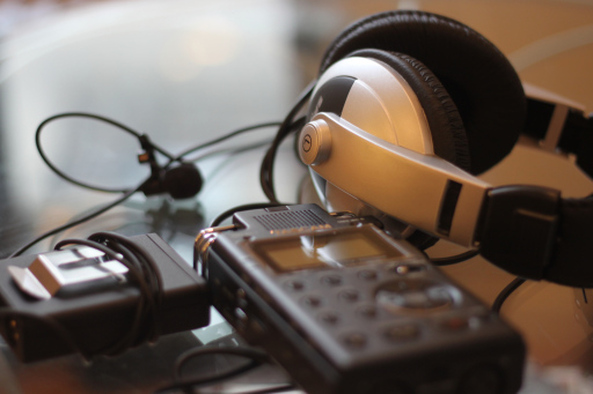|
The Breadcrumbs widget will appear here on the published site.
Other People's StoriesSeveral months and some significant life changes later, I find myself not in Washington, D.C. but here in New York City, a student again. I am in the Oral History Masters Program at Columbia University and as I move through my studies and learn what it means to work with other people’s stories, I face an ever-growing list of questions:
• Is telling one’s story, recounting memories, always a therapeutic healing process? Or is it sometimes a sacrifice on the part of the narrator? • What damage may you inflict on someone by asking them to share their story? • When dealing with people who have lived through traumatic experiences, what is their responsibility to their communities in regards to sharing those experiences? • What about the people who just want to forget? • As a new friend of mine put it, is “memory” a thing of privilege? When you struggle for your daily existence, is there room to reflect on the significance of political memory? In the discipline of oral history, an underlying assumption is the implicit value of telling your story to a receptive listener. This is why I got into oral history, why many of us are here. I believe in stories, I believe in the power of constructing a narrative about yourself and community as a way of making meaning. However, I am taking a few classes outside of my program that call into question some of the fundamentals of oral history practice. In a seminar on trauma and witnessing, we discuss whether one can ever truly convey and narrativize trauma. To what degree is trauma untellable, and to what degree must one push past that in order to benefit the collective? In a class based in social science methodology we have debated the idea of autonomy and control granted to narrators (interviewees) in oral history. Why would we share our interpretation of a narrative with its narrator? What if they don’t agree with our analysis? This tension in particular really grabs me. Are we so accustomed to exploitative models of research that the idea of seeing your “informants” or “narrators” as co-collaborators, or even part of your audience seems absurd? Recently Audrey Petty, editor and director of the oral history project/book High Rise Stories from Voice of Witness came to Columbia to speak about her work. When she was asked about who she wrote the book for, her response struck me: “My narrators.” Originally she had thought her audience would be people like her, people in Chicago who knew of and lived around high rise housing projects, but didn’t really know or understand the lives of those inside them. Yet, as she got deeper into the project, she shifted gears and she instead produced a book that her narrators could see themselves in, that was true to their experiences and their stories. It struck me as both beautiful and radical. Perhaps the difference can be attributed to the literary goals of her project, versus the academic goals of research. I’m not totally convinced. I remain hopeful that working through these tensions, along with the informed practice of oral history can break the modes that we conventionally use to tell other people’s stories. CommentsComments are closed.
|
|








